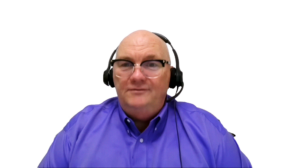
Ep 168 | Dan O’Connor
Dan O’Connor – Threats to U.S. Security: Aging Infrastructure, Fragile Systems, and Information Warfare
Summary
The threats facing the United States’ stability seem to be escalating daily – from aging electric grids and deteriorating infrastructure to rising information warfare from domestic and international sources. How are some of the leaders within our institutions approaching these risks to respond with resilience and strengthen our national security?
Today, Nate is joined by national and homeland security authority Dan O’Connor to discuss what he sees as the most pressing risks for the stability and resilience of the United States. Dan emphasizes the critical role of energy in shaping our societal structures and the need for adaptive resilience and personal responsibility in the face of systemic risks.
How is the interference from adversarial information warfare eroding public trust and national resilience? In what ways are cultural fragmentation and worsening health crises accelerating our economic and environmental challenges? And, perhaps most importantly, could the most effective solution to these large-scale systemic challenges lie in embracing personal responsibility and authentic leadership?
About Dan O’Connor
Dan O’Connor is a recognized national and homeland security authority with extensive experience in national and homeland security, law enforcement, exigent leadership, crisis management, emergency management, continuity of operations, and security/anti-terrorism.
He has consulted and produced operations for security and emergency management at various Olympic Games, and has been a consultant and key leader/facilitator for four of the largest marathons in the United States and a Super Bowl.
His contributions extend to Operation Allies Welcome, refugee resettlement efforts, and leading responses to over 1,200 federally declared disasters, showcasing his proficiency in operational excellence and crisis management. Recently, he was the only American selected to facilitate a NATO/Eastern European energy and crisis security exercise in Latvia and Lithuania, where his political acumen, vision, conception, and crisis leadership earned special recognition.
In French, we have a motto that says that a simple drawing is often better than a long explanation. Jean-Marc Jancovici Carbone 4 President
That’s very understandable because with left atmosphere thinking, one of the problems is that you see everything as a series of problems that must have solutions. Iain McGilchrist Neuroscientist and Philosopher
We can’t have hundreds and hundreds of real relationships that are healthy because that requires time and effort and full attention and awareness of being in real relationship and conversation with the other human. Nate Hagens Director of ISEOF
This is the crux of the whole problem. Individual parts of nature are more valuable than the biocomplexity of nature. Thomas Crowther Founder Restor
Show Notes & Links to Learn More
Download transcript00:00 – Dan O’Connor
04:42 – Everything is based on and driven by energy
05:47 – Second law of thermodynamics
07:01 – Energy Returned on Investment
07:59 – Tanks drove WWI, Petroleum’s role in WWII
08:29 – Bretton Woods
08:40 – Fortune 500s in the 20th century that were hydrocarbon adjacent
08:53 – Engine knocking, lead, and effects on IQ
09:21 – Domino theory
09:49 – US Global Hegemony
10:11 – 158 trillion dollars in deferred maintenance costs, aging infrastructure
10:41 – Infrastructure report card for the U.S.
12:20 – Haber Bosh, Green Revolution, Paul Ehrlich
12:35 – U.S. use of food exports as an economic tool against Soviet Union during the Cold War
13:12 – Self-Organized Criticality
13:15 – DJ White, TGS Episode
14:46 – Carrington Event, Polar Vortex, Dresden Bombs
15:59 – Ed Conway, Material World, TGS Episode
16:13 – North Carolina Silicon production, Hurricane Helene disruption
16:46 – Saline production in Puerto Rico and disruptions from Hurricane Maria
17:56 – VUCA and BANI
20:58 – Nassim Taleb, Antifragile
22:22 – Cobalt Mines, Artisanal mining in the Congo
23:17 – Stoicism
24:44 – Von Clausewitz Politics
25:14 – Optimal Foraging Theory
27:02 – Multi-trillion dollar food system, health declines
27:08 – Multi-trillion U.S. dollar health system that is inadequate
27:26 – Jonathan Haidt, TGS Episode
28:33 – DHS origins, 9/11
29:57 – Gold Standard, effect of the US leaving it
32:03 – Huxley, Orwell, Tower of Babel
34:20 – Extent of data monitoring and digital footprint in the US
38:20 – Misinformation during hurricane Helene
45:11 – Cultural differences across the regions of the United State + American cultural regions mapped through the lexical analysis of social media
46:15 – Bioregionalism, TGS episode
46:32 – Thomas Barnett, America’s New Map | Book by Thomas P.M. Barnett
47:51 – Greenland is 70% minerals, US gave away mineral rights to China
48:02 – Simon Michaux, TGS Episodes Part 1 & 2
52:06 – 1 trillion dollars added every day to US debt
53:55 – Daniel Schmachtenberger, TGS Episodes
54:52 – Will Harris at White Oak Pastures, Joel Salatin of Polyface Farm, regenerative agriculture
57:18 – Robert F. Kennedy
58:37 – Calorie consumption is down, trends in obesity continue to rise
1:00:55 – Allostatic Load
1:01:24 – Endocrine Disruptors
1:05:38 – Viktor Frankl
1:06:18 – Exposure to sugar rationing in the first 1000 days of life protected against chronic disease
1:08:21 – Dan’s references on obesity and nutrition
1:10:53 – 16% of the DOD is 18-24 year olds
1:13:20 – Red Scare
1:15:37 – Machiavellianism
1:19:05 – Irish Potato Famine







